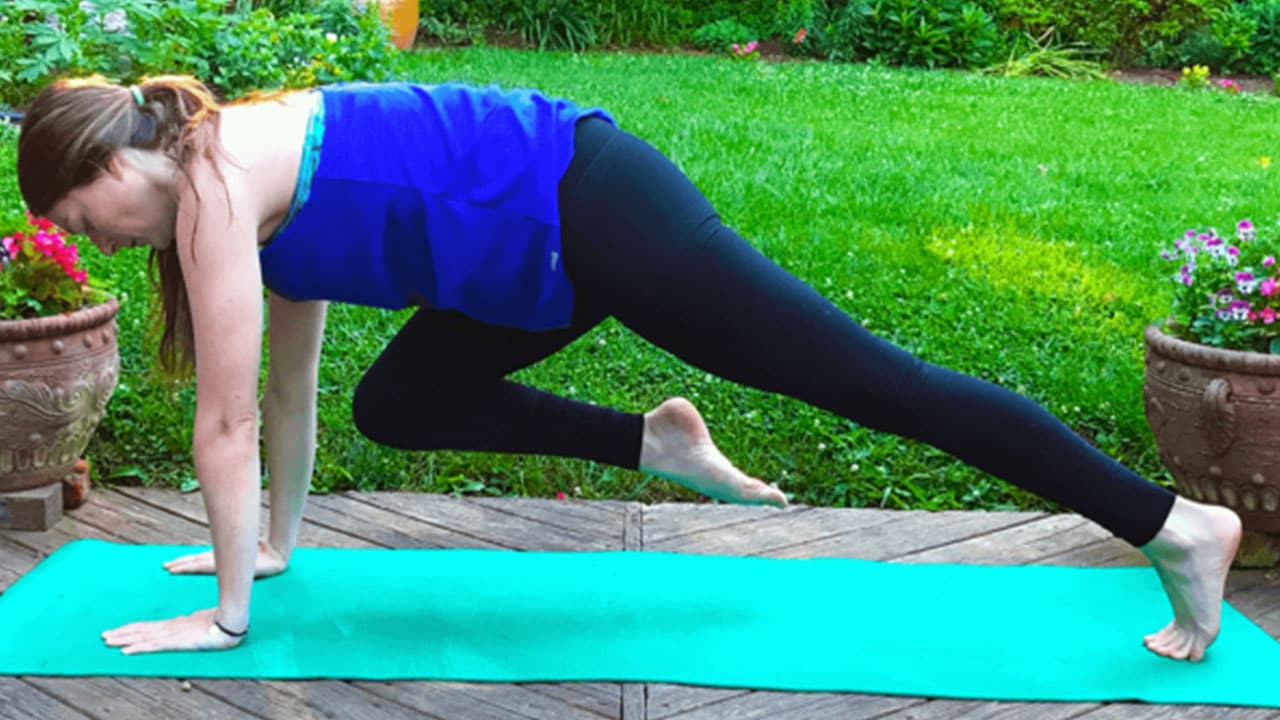View 7 Pilates Exercise to Improve Your Running
One of the biggest things I love about ChiRunning is that it’s thrown the whole concept of “no pain, no gain” out the window. (Seriously – that’s so, like 1985!) By working with the forces of nature and engaging your mind and body to move forward, running becomes a mindful and enjoyable whole body movement that promotes health and wellness.
A key area of focus as a ChiRunner or ChiWalker is to maintain proper alignment and posture throughout the movement. The core muscles are engaged to stabilize the body each time the foot lands on the ground and when the body is in the flight phase of the stride as well. .
Consciously Engaging Core Muscles in Pilates & ChiRunning
As a Certified ChiRunning/ChiWalking Instructor, I have found that for many it’s not that they lack the core strength to hold themselves in proper alignment, but rather that they have forgotten how and when to engage the strong, stabilizing muscles of their core. Once upon a time as children, we naturally engaged our core muscles, but years of sitting behind desks, in front of televisions, and driving in cars has nullified our innate use of these muscles– that includes when we run as well.
In both Pilates and ChiRunning, we are mindfully and consciously learning to bring these crucial, stabilizing muscles back into your movement habits.
Personally, I use classical Pilates to complement my ChiRunning practice because they share many fundamental principles:
- Whole body and mindful movement
- Proper body alignment
- Pelvic stability
- Core engagement
- Focused, intentional movement.
Moving Mindfully with Pilates
I’ve been practicing classical Pilates regularly now for several years. I’m fortunate to have fantastic teachers and a lovely studio (Whole Living Pilates in Colorado Springs, check it out!) that affords the opportunity to work on different types of apparatus (mat, reformer, chair, spine corrector, tower, etc.). With each movement the focus is never how far you can go or how hard you can work, it’s about doing the movement correctly and learning the feeling within your body (Body Sensing!).
In this way, Pilates is a lot like ChiRunning. It doesn’t matter how far or fast you can run, the point is doing so efficiently, with good posture, and paying attention to how your body feels. In Pilates and ChiRunning, the point is to create healthy, positive movement habits. You don’t push harder until you can maintain that proper movement for the duration. It is way better to move smoothly and correctly and from there, you can progress in your strength building or your running distance without fear of pain or injury.
Whole Body Movement
In both practices, you maintain a sense of where your pelvis is in space, how to stay tall with good posture, and how to feel your core engaged. You’ll feel your body moving as one whole unit.
In Pilates, the fun movement challenge is to feel this cohesive body movement from various positions. Ultimately all this varied practice helps you find your core while you’re running or no matter what you’re doing.
Through Pilates I practice Body Sensing that I then bring into my ChiRunning practice. I’m either lying on the mat and really reaching through the crown of my head, feeling my core engage, and keeping my pelvis level as we perform a Pilates exercise. Or, I’m on the roads or trails also reaching through the crown of my head and feeling my core engage as I fall forward and catch myself with my next foot strike.
It’s never one body part acting alone – it’s mind and body fully integrated and connected throughout the practice.
It’s “no pain, ALL gain!”
Written by: Amelia Vrabel, Senior Instructor
Colorado Springs/Denver, CO
7 Pilates Exercise to Improve Your Running:
1. Single Leg Stretch
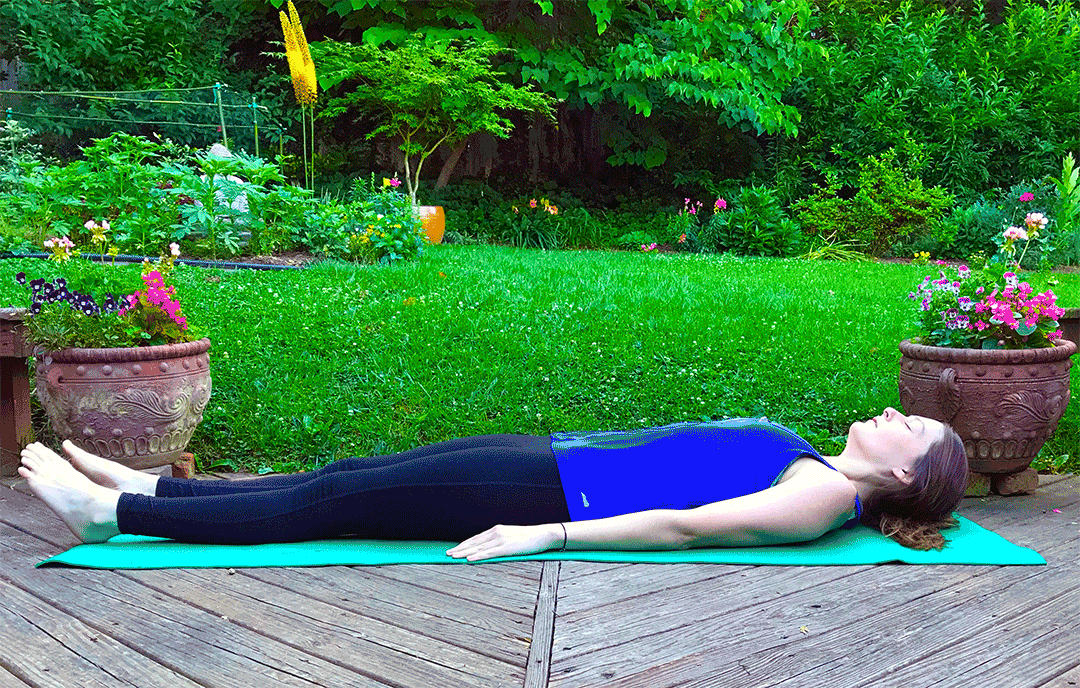
How to:
a) Lie face up on your mat.
b) Curl your head and shoulders up off the floor while engaging your core.
c) Lift legs off your mat to a 45º angle.
d) Bring your right knee to your chest and grab your knee while keeping your left leg stretched out.
e) Switch legs.
d) Perform 5-10 reps on each side.
Benefits:
- Trains your abdominals to support and stabilize your movement while in motion
- Improves endurance through continuous contraction of abdominals
- Improves stability of the pelvis and torso
2. Roll Up
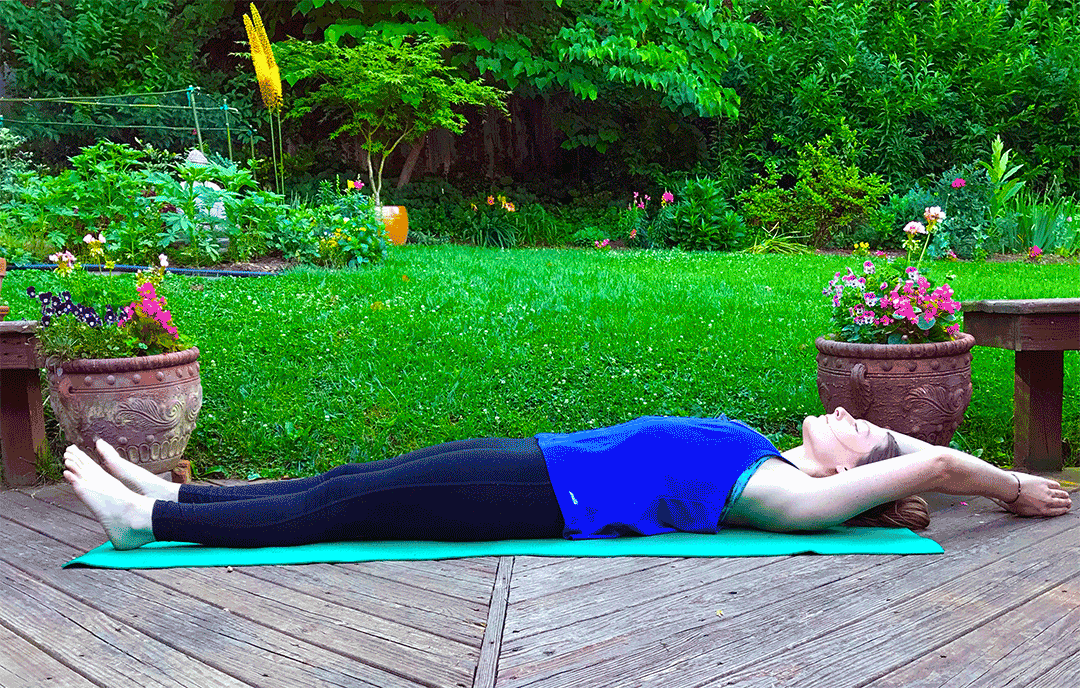
How to:
a) Lie face up with legs straight out from your hips.
b) Extend arms overhead.
c) Tuck your chin to your chest and draw your arms forward and out.
d) When your wrists are directly over your shoulders, begin to peel your shoulders and back off the mat, one vertebrae at a time.
e) Fold as far as you can over your legs without straining.
d) Round your back to slowly roll back down to your mat.
e) Perform 5-10 times.
Benefits:
- Promotes deep breathing
- Increases blood flow
- Strengthens your spine and core
- Improves flexibility and alignment
- Promotes control over the legs and hips
3. Pendulum
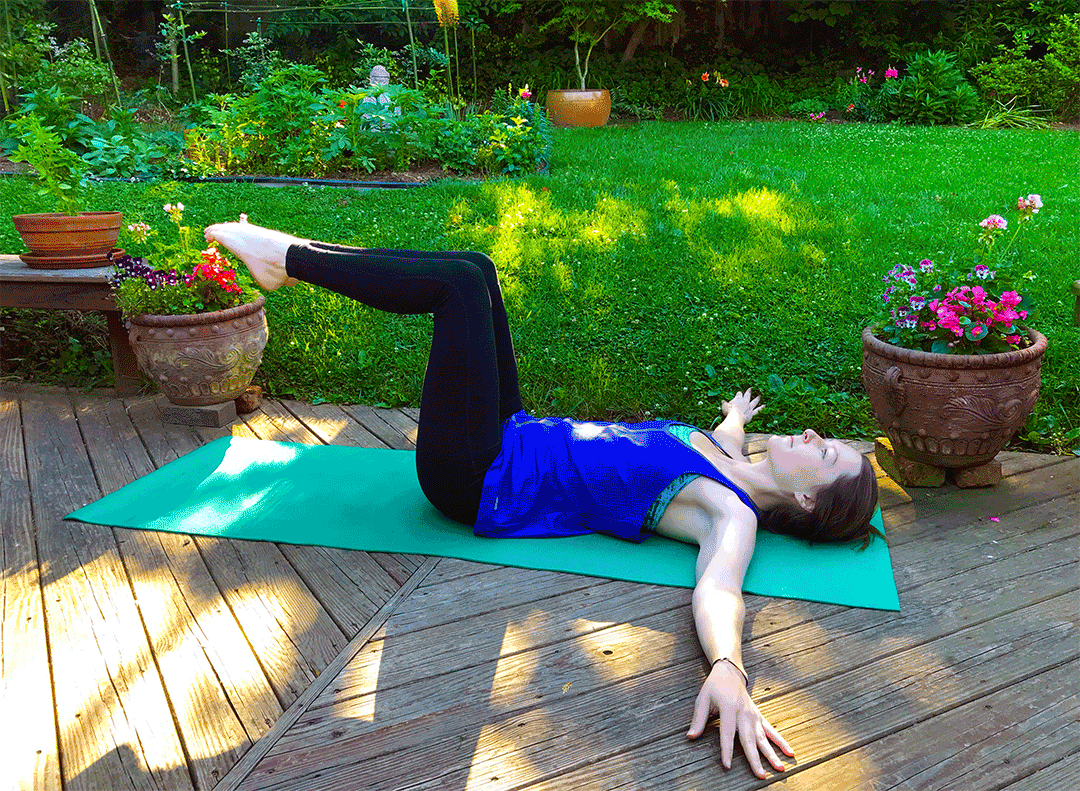
How to:
a) Lie face up on your mat with your arms extended out to your sides– straight out from your shoulders.
b) Bend your knees over your hips and lift feet off the ground.
c) Let your knees fall to the right while keeping your lower back on the ground.
d) Return to starting position and repeat on the other side.
e) Perform 5-10 times on each side.
Benefits:
- Improves hip flexibility
- Strengthens core
4. Thigh Stretch
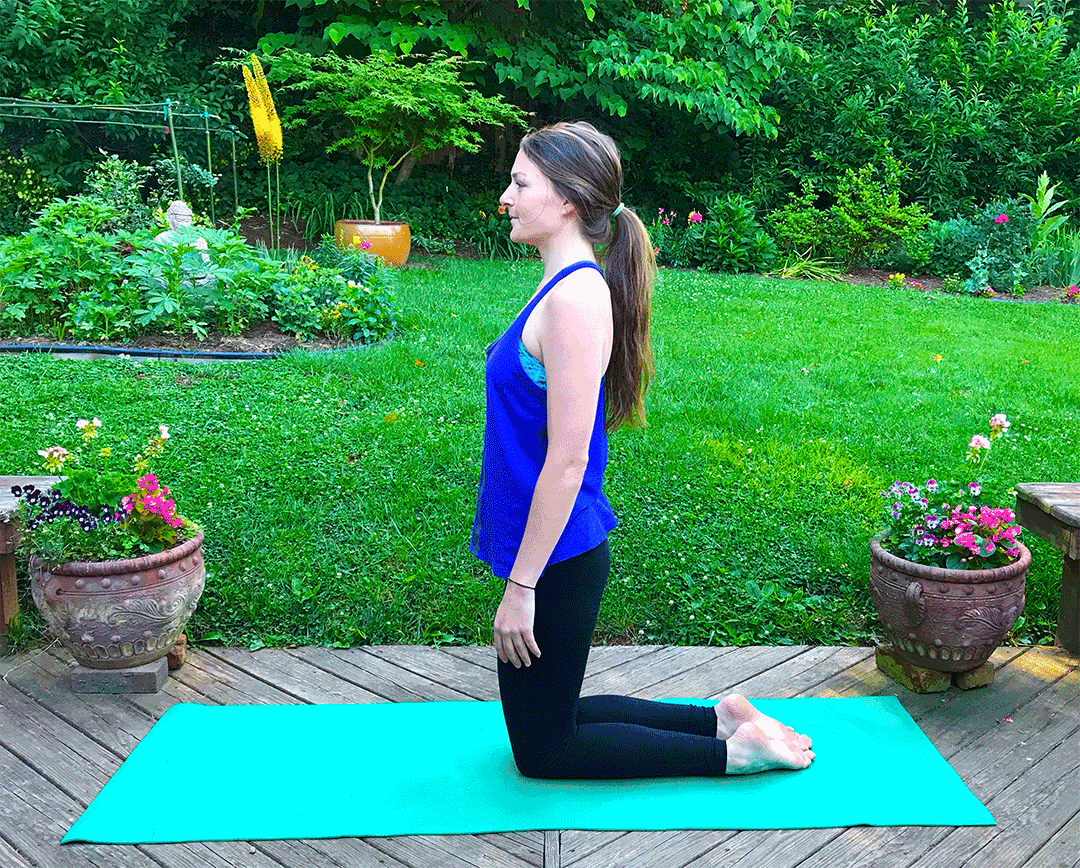
How to:
a) Kneel on your mat with your feet touching.
b) High upper body back to about a 45º angle while engaging your abdominals and glutes. Keep your body (knees to head) in a straight line.
c) Return to start.
d) Perform 5-10 times.
Benefits:
- Strengthens glutes and abdominals
5. Back Extension
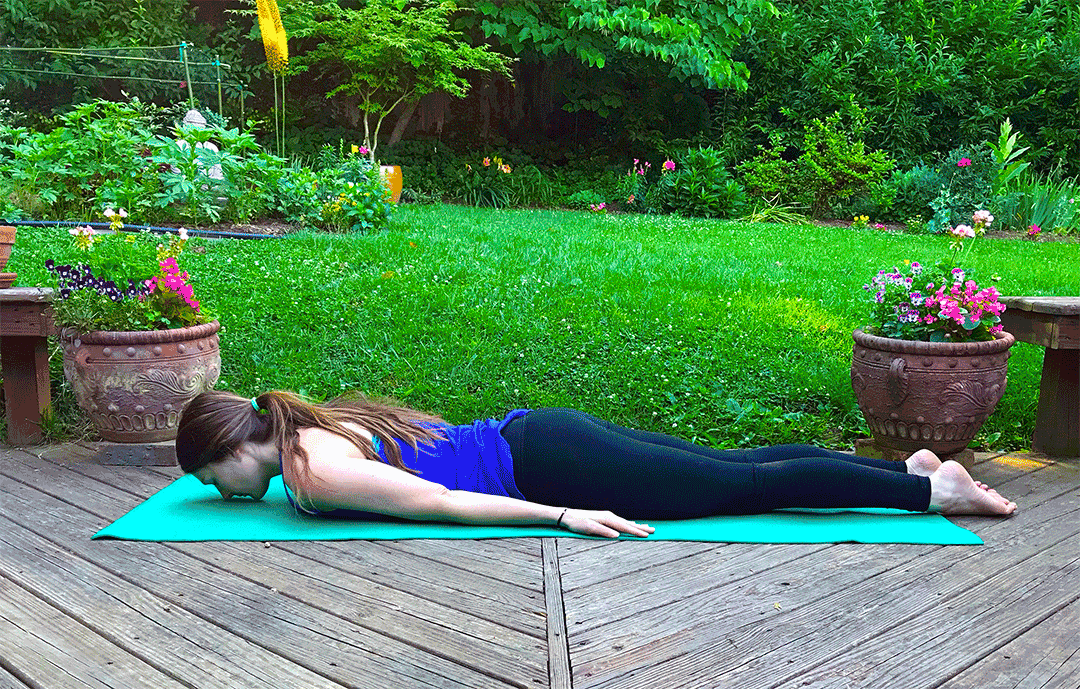
How to:
a) Lie face down on your mat with your arms down at your side, palms down.
b) Lift your upper body, arms, and legs off the ground a few inches.
c) Return to start.
d) Repeat 5-10 times.
Benefits:
- Strengthens upper and lower back muscles
- Stabilizes the torso
- Improves posture
- Aids back pain
6. Plank with Leg Lift
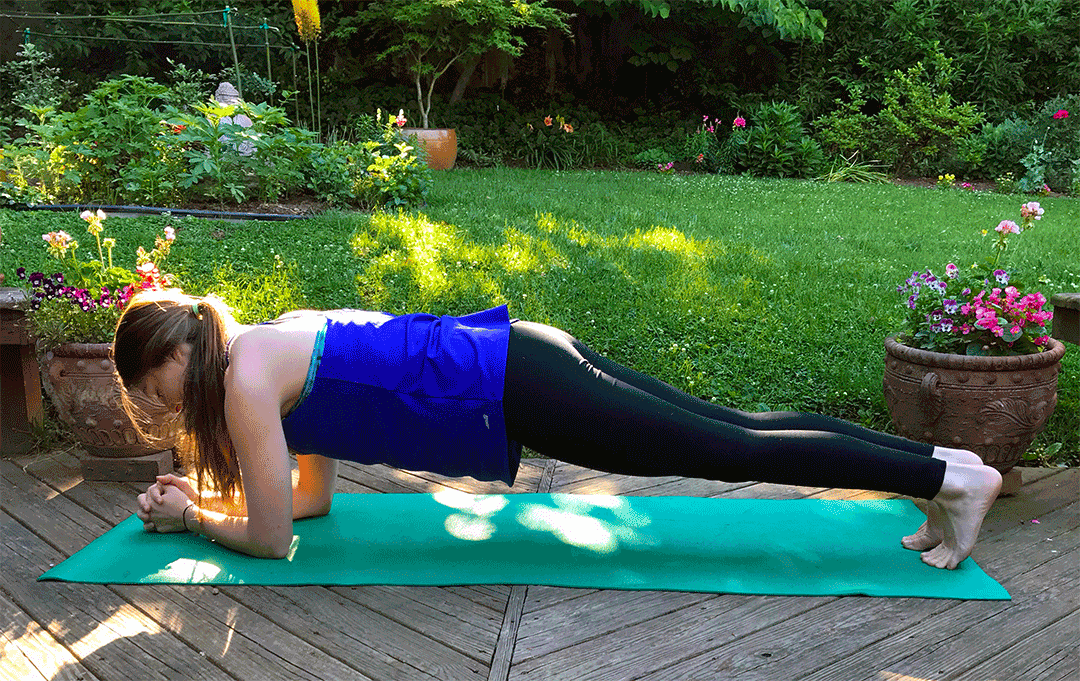
How to:
a) Start in a forearm plank with hands clasped, elbows directly under shoulders, and core engaged.
b) Lift your right leg as high as possible and then, lower.
c) Repeat with opposite leg.
d) Perform 5-10 times on each leg.
Benefits:
- Full Body Exercise: Strengthens core, glutes, and shoulders
- Improves posture and stability
- Boosts metabolism
7. Slow Motion Mountain Climber
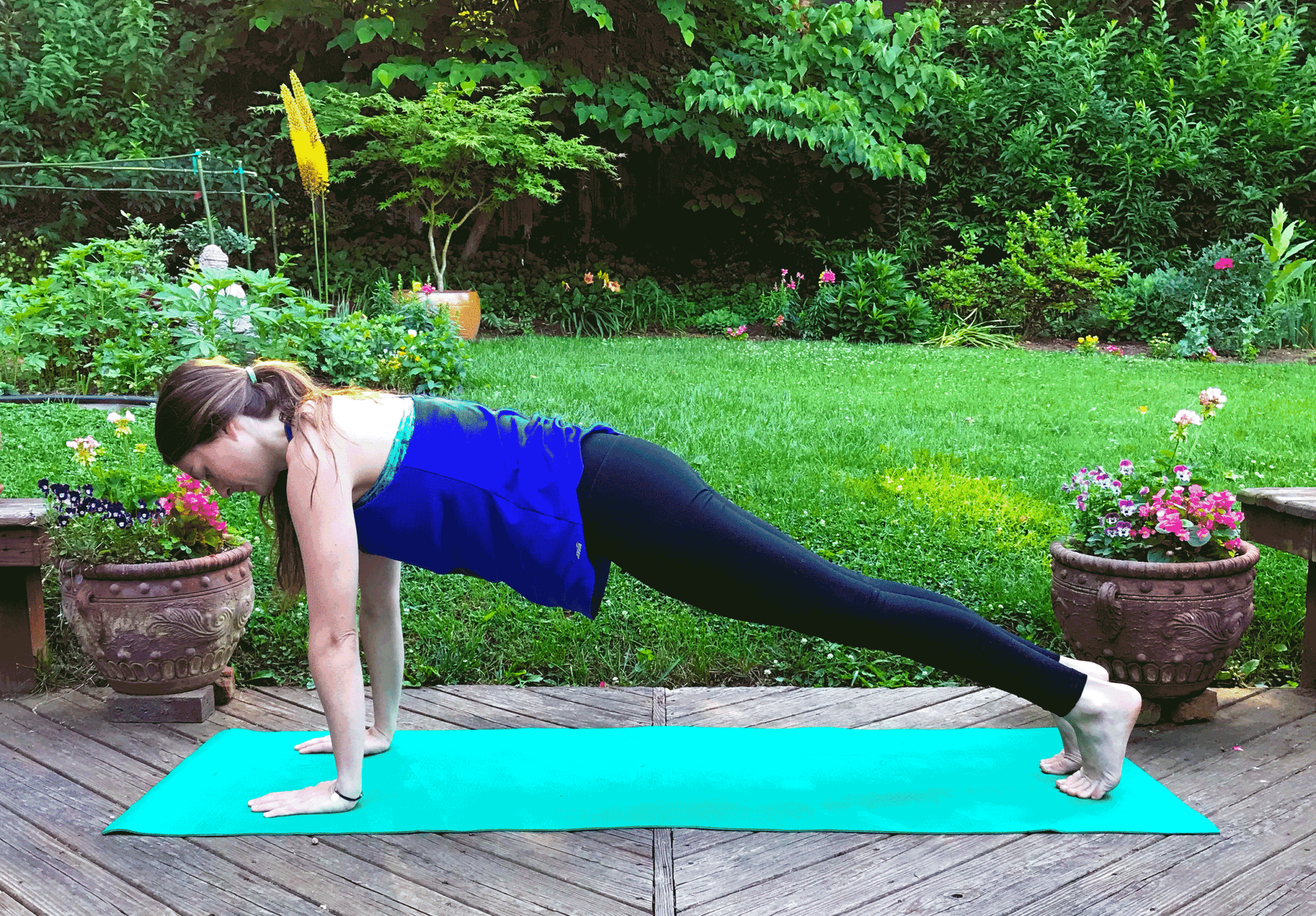
How to:
a) Start in a high plank.
b) Bring one knee towards your chest.
c) Repeat with the other knee.
d) Perform 5-10 times with each leg.
*Be sure to keep your core, glutes, and quads engaged to avoid the rocking of your hips.
Benefits:
- Strengthens core, glutes, and shoulders
- Improves balance and stability
- Increases mobility and coordination
[thrive_leads id=’5151′]

